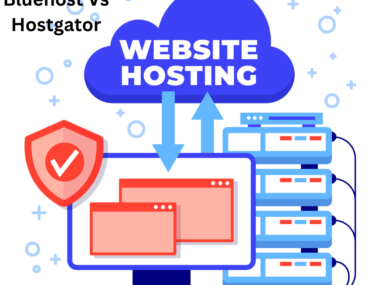Choose a web hosting provider. It should match the size, traffic, and technical needs of your website. Ensure they offer reliable support, scalability, and appropriate hosting plans.
Also Read
Choosing the right web hosting provider is a key decision. It’s vital for any successful website. It’s essential to balance cost, features, performance, and customer service. Your hosting provider is the foundation of your online presence. Reliability is crucial.
Speed, uptime, and security are crucial for maintaining a professional image. They ensure a positive user experience. Consider your site’s current needs while planning for future growth. The ability to easily upgrade your hosting plan is a must. Providers with a reputation for robust customer support can save you countless headaches.

Remember to read reviews. Compare pricing plans and consider the quality of their infrastructure. Trustworthy hosts often offer trial periods or money-back guarantees. This enables you to test their services without risk.

Credit: issuu.com
Starting Your Web Hosting Quest
Choosing the right web hosting provider is a pivotal step for your website. This decision impacts your site’s performance, security, and scalability. To find the perfect host, first understand your site’s demands. Then, have a realistic budget in mind. Explore the essential factors to guide this important choice.
Identifying Your Website Needs
Every website is unique, with different requirements. Consider the following:
- Type of website: blog, e-commerce, portfolio?
- Expected traffic: Estimate your visitor numbers.
- Content: Will you host videos with high-resolution images?
- Software: Content Management System (CMS) preferences?
- Scalability: Plan for future growth.
Answering these questions narrows down your search, making it easier to pick a suitable host.
Budget Considerations
Establishing a budget is critical. Web hosting services vary in price, offering different packages. Examine the plans and align them with your financial limits.
| Hosting Type | Cost Range | Best For |
|---|---|---|
| Shared Hosting | Cheapest | Small websites and blogs |
| VPS Hosting | Moderate | Business sites with medium traffic |
| Dedicated Hosting | Expensive | Large sites with high traffic |
| Cloud Hosting | Variable | Sites with fluctuating traffic |
Consider the long-term affordability, not just the initial offer. Look for value in terms of features, support, and upgrade options rather than simply seeking the lowest cost.
Types of Web Hosting Services
Choosing the right web hosting service is crucial for your website’s success. It can impact your site’s speed, security, and uptime. Understanding the types of web hosting services is the first step. Let’s dive into the different types and find the best fit for your site’s needs!
Shared vs. Dedicated Hosting
Shared Vs. Dedicated Hosting
Shared hosting is like living in an apartment building. You share resources with other websites. It’s affordable and great for small sites.
Dedicated hosting means you own the whole server. Your site stays fast and secure. It’s perfect for big businesses with lots of traffic.
| Hosting Type | Pros | Cons | Best For |
|---|---|---|---|
| Shared Hosting |
|
|
Startups, Blogs |
| Dedicated Hosting |
|
|
Large businesses, high-traffic sites |
VPS And Cloud Hosting Explained
Virtual private server (VPS) hosting splits a server into virtual machines. Each acts like a dedicated server but is more affordable.
Cloud hosting uses multiple servers. It offers unlimited scalability and high reliability. Pay only for what you use.
- VPS Hosting: Your own space with better security.
- Cloud hosting is ideal for growing businesses that need flexibility.
Key Features To Look For
Choosing the right web hosting provider is crucial. A good host helps your website load fast and stay online. Below are the core features to guide your choice:
Uptime Guarantees And Server Reliability
Web hosts must offer high uptime. This means your site is always available. Look for 99.9% uptime guarantees. This is a sign of reliable servers. Check reviews for real user experiences:
- Customer testimonials can indicate actual uptime performance.
- Third-party reviews: Offer unbiased insight.
Scalability And Growth Potential
Your business might grow. Ensure your web host can scale with you. You need flexible plan options to upgrade. Important features include:
| Feature | Benefit |
|---|---|
| More Storage | For growing content needs |
| Bandwidth | Handles more visitors smoothly |
| Processing Power | For complex applications |
Select a host that supports your long-term vision. Check for easy plan upgrades without downtime.

Credit: m.facebook.com
Security Measures And Support
Finding the right web hosting provider is like finding a safe home for your website. Your website’s security is crucial. Think of web hosting security as a shield that keeps hackers away. Good support is like having a helpful neighbor, always there when you need a hand. Let’s explore why these features are key for a reliable web host.
Importance Of Robust Security
Strong security keeps your website and data safe. It’s vital for earning trust and protecting your customers. Without it, you run the risk of data breaches and hacks.
- SSL certificates: These keep the data on your site locked up tight.
- Firewalls and malware scans—these act as your site’s bodyguards.
- Daily backups: If something goes wrong, you want a recent copy of your site.
- DDoS protection: This keeps your site online even during an attack.
Choose a provider that offers these security features. They work 24/7 to keep threats away.
Evaluating Customer Support And Service
Good customer support is like having a superhero on speed dial. It’s there to rescue you when something goes wrong with your site.
| Support Feature | Why It’s Important |
|---|---|
| 24/7 availability | Problems don’t wait for business hours. You need help anytime. |
| Multiple channels | Phone, email, or live chat should be options for reaching out. |
| Knowledge base | An online library for self-help can answer many common questions. |
| Friendly experts | Support should be easy to talk to and know their stuff. |
Test the support before you decide. Send them questions. See how they answer. Fast and helpful responses are green lights.

Deciphering User Reviews And Feedback
Choosing the right web hosting provider is crucial for a successful online presence. User reviews and feedback offer valuable insights. They help potential customers understand what to expect from a host. However, it’s important to analyze these reviews with a critical eye.
Analyzing Genuine Customer Experiences
Real customer reviews shed light on the actual performance of web hosting providers. But distinguishing between authentic feedback and promotional content is key. Look for detailed reviews. They should focus on specific aspects of service. These include uptime, customer support, and site speed. Such details add credibility to the review.
- Scan for consistency in reports across different platforms
- Look for patterns in complaints or praises
- Check the dates of reviews to ensure they are recent
- Use third-party review sites for unbiased information
Using Testimonials To Gauge Reliability
Testimonials can be a gold mine of information. They often highlight a host’s strengths. Check the provider’s website for a testimonials section. Companies usually showcase positive experiences there. However, remember that these are hand-picked by the host.
| Client | Experience | Outcome |
|---|---|---|
| Small Business Owner | Server uptime | Improved website availability |
| Blogger | Customer Support | Faster issue resolution |
| eCommerce Manager | Page loading speed | Higher customer satisfaction |
Remember to balance these positive stories with external reviews. This approach provides a well-rounded understanding of a web host’s reliability.
Making The Final Decision
Reaching the pivotal moment of selecting a web hosting provider is critical. The final steps involve careful consideration and keen attention to detail. Prepare to seize trials and rigorously examine contracts before making a commitment.
These strategies enhance confidence in the decision to partner with a provider. The provider is capable of elevating your online presence.
Taking Advantage of Trials And Guarantees
Before committing, try out the hosting services. Many hosts offer trial periods or money-back guarantees. This is a golden opportunity to test features, support, and performance without risk. Look for these key points:
- Length of Trial Period: More days give a better feel to the service.
- Limits within Trial: Some trials come with restrictions. Know them.
- Refund Policy Details: Understand what counts for a money-back guarantee.
Reviewing And Comparing Contracts
Contracts lock in terms of service. It is vital to read them thoroughly. Compare different providers on specific terms:
| Feature | Provider A | Provider B | Provider C |
|---|---|---|---|
| Term Length | 1 year | 2 years | 1 year |
| Renewal Price | $100/year | $90/year | $95/year |
| Cancellation Policy | 30 days | 60 days | 45 days |
Take notes. Weigh the terms offered against your needs. A good match of features, price, and flexibility often signals the right choice.
The Future With Your Hosting Provider
Choosing the right web hosting provider is like planting a tree. You want it to grow and thrive over time. Choose a hosting service that can support your website as it expands and attracts more visitors. Look for hosts that guarantee long-term commitment. Also, look for hosts that are flexible and can adapt to your website’s needs.
Preparing For Long-term Collaboration
When your website joins a hosting provider, you start a partnership. To ensure a fruitful partnership, ask providers about:
- Upgrade options: Can your plan grow with your website?
- Support quality: Is 24/7 help available?
- Additional services: Do they offer backups and security?
A table below highlights key factors to consider for a sustainable collaboration:
| Aspect | Importance | Questions to Ask |
|---|---|---|
| Scalability | High | Can I upgrade my server resources easily? |
| Support | High | Is technical support available 24/7? |
| Backup | Essential | How often do you perform data backups? |
Monitoring Performance And Reassessing Needs
Regularly check how your website performs. Useful metrics include:
- Uptime: Your website should always be accessible.
- Load time: Pages should load quickly.
- Traffic capacity: Can the server handle your visitors?
Use tools to monitor these metrics. If the host falls short, contact support. If issues persist, consider other providers who meet these needs:
- Better uptime guarantees
- Faster load times
- Higher traffic management
Remember, your website’s future depends on the strength of your hosting provider.

Credit: issuu.com
Frequently Asked Questions for How to Choose the Right Web Hosting Provider?
What Factors Affect Web Hosting Choices?
When selecting a web hosting provider, consider server reliability and uptime scores. Also, review upgrade options, hosting costs, refund policies, and customer service quality. These factors profoundly impact your website’s performance and scalability.
How does bandwidth influence web hosting selection?
Bandwidth determines how much data your website can transfer to visitors in a given time. Choose a provider offering sufficient bandwidth based on your anticipated traffic. This will ensure a smooth user experience.
Can hosting location affect website speed?
Yes, the physical location of web hosting servers can affect website loading times. Closer server locations to your user base can result in faster load times. This can improve SEO rankings.
Why is uptime important in web hosting?
Uptime is critical because it represents the time your website is available to users. Look for providers with high uptime guarantees (99.9% or more), ensuring minimal downtime and consistent website accessibility.
Conclusion of How to Choose the Right Web Hosting Provider
Selecting a suitable web hosting service is critical for your online success. Prioritize your requirements, evaluate providers, and consider scalability. Remember, security, uptime, and support are paramount. Ending up with the right host sets your website on the path to growth and reliability.
Make your choice wisely—it’s an investment in your digital presence.













2 comments